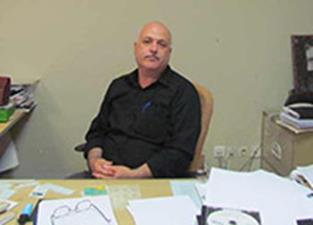Baharieh (on spring)
The Unheard
Seyyed Mohammad-Sadeq Feiz
Translated by Ruhollah Golmoradi
2019-4-6

It's been for years in such days or better to say that in a specific day, hour, minute and even second, the new year will be arrived. Just like a new-born child. And it's for all both auspicious and pleasing and may be exciting. Although the latter, that is, birth of children, is at least a year older than New Year but both of them have come to this place alongside each other. The lovely repeated who are all happy with these repetitions. It is as if these two repetitive events never to be old.
The same unique consecutive recurrences are like a sugar cube soaked in bitter tea of era, and eating them change and make sweet taste of tedious and hard life.
Hearing and reading memories also bring sweetness. Sometimes it's even addictive; however, its tellers are escapee and its seekers are running. What is like it? Being not repetitive coincident with being repetitive!
When someone speaks of prison, or on courageous, his sayings are not the same with another one; as well as his sadness and joy, and kind of his view. One has experienced a year, place and a family and the other a year, place and another family. So why is it sometimes bitter to read and hear some of them? Perhaps, defects must be found in "media". Whether narrator or one who reflects.
The Islamic Revolution was begun by a few people and was initially suppressed rapidly, but it became pervasive because of its spread among the people and their participation, and its repression became hard and harder and, at the end, impossible.
The war was the same. When all the responsibility was absolved from Artesh (the army) and IRGC and distributed among the people, the advances accelerated, and in the fronts the table were turned on the part of Iran.
Now, perhaps, it's time to listen to a few voices that are narrator of just a moment of wide and fast flow of time. In memories of the revolution period, mostly main actors have been addressed and huge mass of people who created epic in streets every day were neglected, but in the war, these single stars restated so great epics and made them abiding.
After all, this patterned and imaginative board which is subjected to patterns by skillful paintings has some pores that will be complemented by restating of the same single voices.
If this happens in the new year, a great step will be taken because this medium is a place for the unheard.
Number of Visits: 4352








The latest
- The Necessity of Standardizing Oral History and Criticism of General Mohsen Rezaei
- The 368th Night of Remembrance – Part 1
- Oral History News of Khordad 1404 (May 22nd – June 21st 2025)
- Najaf Headquarters Human Resources
- The Embankment Wounded Shoulders – 12
- Annotation
- The 367th Night of Memory– 5
- The Founder of Hosseiniyeh Ershad
Most visited
Operation Beit al-Moqaddas and Liberation of Khorramshahr
After Operation Fat’h al-Mobin, we traveled to Kermanshah and visited Sar-e-Pol-e-Zahab before heading to Ilam. During Operation Beit al-Moqaddas, the 27th Brigade was still receiving support from the West. We maintained contact with individuals who had previously worked in Area 7 and were now leading the brigade. It was through these connections that I learned about Operation Beit al-Moqaddas.Memoirs of Hujjat al-Islam Reza Motalebi
Hujjat al-Islam Reza Motalebi is a cleric from Isfahan. Before the revolution, he was the imam of the Fallah Mosque – which was later renamed Abuzar Mosque. By his presence and efforts, Abuzar Mosque soon became a base for supporters of the Imam and the revolution. After the victory of the revolution, he played a role in uniting forces and maintaining political vitality in southwest Tehran.The Necessity of Receiving Feedback in Oral History
Whenever we engage in a task, we naturally seek ways to evaluate our performance — to correct shortcomings and enhance strengths. Such refinement is only possible through the feedback we receive from others. Consider, for instance, a basketball player whose shots are consistently accurate; should he begin shooting blindfolded, his success rate would rapidly decline, as he would be deprived of essential feedback from each attempt.Sir Saeed
The book “Sir Saeed” is a documentary [narrative] of the life of martyr Seyyed Mohammad Saeed Jafari, written by Mohammad Mehdi Hemmati and published by Rahiyar Publications. In March 2024, this book was recognized as one of the selected documentary biographies in the 21st edition of the Sacred Defense Book of the Year Award. The following text is a review on the mentioned book.

